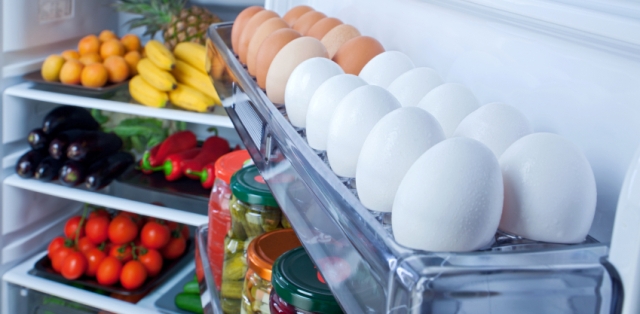2. Storage of Food Materials
We have to understand that we cannot store all foods at room temperature. We need to keep many foods in the refrigerator with steady power supply in order to keep the food quality and shelf life intact. Eggs, for example, should be kept in the refrigerator to prevent the proliferation of Salmonella – they are there on every egg but just need the right temperature to multiply. keeping eggs in cold storage will prevent this and the disease they could potentially cause.
Food materials such as meat, fish, vegetables are also to be kept in the refrigerator or freezer. Although freezer can damage the tissues of fish, meat and vegetables if the temperature is not kept constant for the period of storage, it still keeps our food safe to consume.
Reading of food labels is one habit we should endeavour to develop. Many people do not read the instructions written on packaged foods by the manufacturers. They just don not care. I have bought a vegetable salads on which pack, they wrote “consume within 15 minutes”. This is to ensure that you eat the food when it is safe and of best quality.

Reading of food labels can tell us if the food should be stored under special conditions. Manufacturers, due to the nature of some foods, specify the conditions to subject a particular food to in order to keep its quality. We have to follow this if we want the food to remain safe for consumption. Yoghurt, for example must be stored in the refrigerator. It contains actively fermenting bacteria, which will continue multiplying and fermenting the yoghurt until it gets spoiled. Consuming this type of Yoghurt may lead to sickness.
RECOMMENDED: The Brands of Yoghurt You Must Not Buy Again
Next on Page 3 — How to cook and prepare foods to prevent food poisoning…

0 Comments